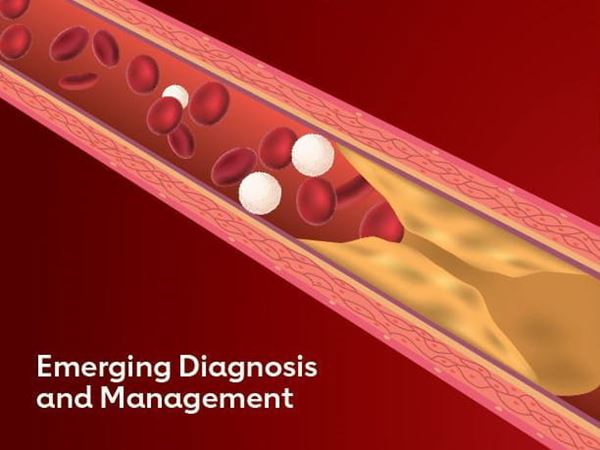Lp(a) for Professionals
Lp(a) is a genetic independent risk factor for cardiovascular disease.
An estimated 20% to 30% of people worldwide have high levels of plasma lipoprotein(a).
It is important for clinicians to incorporate comprehensive guidelines for diagnosing, treating, and managing elevated Lp(a) into patient evaluation and risk assessment.

eModule
Identify & Manage Lp(a)
In this eModule, healthcare professionals can explore the role of lipoprotein (a) or Lp(a) as an emerging atherosclerotic cardiovascular disease (ASCVD) risk factor. Lp(a) is an inherited lipid disorder that is underdiagnosed and underappreciated as a driver of ASCVD.

HeartBEATS from Lifelong Learning™
Hyperlipidemia & Atherosclerotic Cardiovascular Disease
Lp(a) in Focus: Breakthrough Therapies and Clinical Implications
Explore the evolving landscape of Lp(a) in clinical practice, including the importance of Lp(a) testing in comprehensive cardiovascular risk assessment. Claim CE and MOC Credit
Beyond the Numbers: Personal Journeys with Hyperlipidemia & ASCVD
This vodcast presents the patient's perspective on living with hyperlipidemia and its impact on health outcomes.
The Highs and Lows of LDL Management
Experts provide valuable insights into the factors influencing elevated LDL-C and how to address common patient concerns, including misinformation about cholesterol.
Toolkits

Lp(a): A Toolkit for Healthcare Professionals
Elevated Lp(a) is associated with heightened risk for myocardial infarction, peripheral artery disease, stroke, and calcific aortic valve disease. Learn more in this toolkit for healthcare professionals.
Lp(a) and Peripheral Artery Disease: Emerging Diagnosis and Management
PAD patients should be screened for elevated Lp(a) if they have a family history of atherosclerotic CVD or recurrence of major adverse limb events despite optimal medical therapy. Learn more about Lp(a) and PAD in this toolkit for health care professionals.

Videos On Demand

Lipoprotein(a): Add Peripheral Artery Disease to the List of Targets
This video on demand emphasizes the impact elevated Lp(a) has on patients with PAD and highlights the importance of testing Lp(a). Leading experts will address comprehensive clinical recommendations for managing patients with elevated Lp(a) and PAD.

Lp(a): An Atherosclerotic Cardiovascular Disease (ASCVD)
Risk Factor That Can No Longer Be Ignored
This presentation for health care professionals educates on genetics and the importance of measuring Lp(a) levels. Leading experts address comprehensive clinical recommendations to incorporate patient-centered care for diagnosing, treating, and managing patients with elevated Lp(a) levels.
Additional Resources
Lipoprotein Apheresis: Utility, Outcomes, and Implementation in Clinical Practice: A Scientific Statement From the American Heart Association Lipoprotein(a): A Genetically Determined, Causal, and Prevalent Risk Factor for Atherosclerotic Cardiovascular Disease: A Scientific Statement From the American Heart Association Guideline on the Management of Blood Cholesterol: A Report of the American College of Cardiology/American Heart Association Task Force on Clinical Practice Guidelines - Lipoprotein(a) - CDC
- PAD for Professionals Page
- PAD National Action Plan
- PAD Patient Resources
Professional Education Hub
Lp(a) Patient Education Resources
Talking to patients about their Lp(a) levels can help reduce their risk of heart disease. Check out these free downloadable Patient Education Resources to use in conversation with your patients:

Guidelines-on-the-Go

The Guidelines-on-the-Go App features the 2020 AHA/ACC Guideline for the Diagnosis and Treatment of Patients with Hypertrophic Cardiomyopathy, plus so much more.